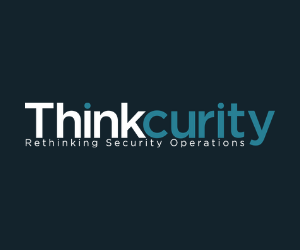As you read in our last blog, Cannabis and Security: Growing Together, the cannabis industry is growing, and it is growing fast. As of June 2022, 20 states have legalized the recreational use of marijuana. The cannabis industry is responding in kind and is set to exceed 33 billion dollars this year, outperforming 2021 by a shocking 32% increase in sales, according to Fortune.
The explosion of the cannabis industry is not likely to slow down, either. A CBS Poll from April indicates that an enormous majority of Americans favor the legalization of marijuana, with only 3 in 10 people reporting they would not want a licensed marijuana business in their area.
With that information in mind, it is perfectly reasonable to assume the growth of this industry will only continue to climb rapidly. Such a high-volume, cash-based industry comes with serious security concerns and a myriad of compliance regulations that must be maintained. How can marijuana businesses protect their merchandise and follow so many compliance standards?

Compliance and Security Standards for the Cannabis Industry
With so many moving parts and regulations to consider, maintaining proper compliance and adequately protecting your product in the cannabis industry can be tricky.
While cannabis remains a Schedule I drug under the Controlled Substances Act, 40% of states have opted to put their own laws on the books, and many localities have followed suit. Cannabis businesses mustn't follow just their state's Cannabis Compliance Board when it comes to moving and securing their product; they must also follow any county, and perhaps even city, regulations.
Common Compliance and Security Standards
Security standards for the cannabis industry go beyond typical retail security. The product must be adequately secured at the grow site, the distribution center, the dispensary, and when moving between all those locations. Here is a list of some of the most common regulations and compliance standards:
- Multiple high-resolution security cameras that are adequately backed up and store all footage for potential future monitoring.
- All entrances and exits must be highly secure: a keycard is often required to enter areas with high-security needs and to open a business establishment.
- Storage centers for merchandise often require secure video footage and adequate video storage.
- Any and all security operations must be documented, either by the business itself or by a hired security company.
- Theft or even just loss of merchandise must be reported within 24 hours, and it is required that something like a broken or faulty security camera be reported within that same time frame.
- Any person working for the business in any capacity must be thoroughly vetted, and all information about clients, employees, and inventory needs to be highly secured.
- Alarm systems are almost always required to have an automatic trigger, such as opening a door or window before the security system has been disarmed.
- Armed security guards may be required to protect merchandise, as well.
These regulations can get seriously granular, too. In some states, there may even be specific laws regarding how many vehicles are needed for cannabis transportation, who is allowed in each vehicle, and how much product or cash is moved from place to place.
Why is Proper Security in the Cannabis Industry So Important?
Businesses within the cannabis industry must understand and properly maintain compliance laws set forth by their governing Cannabis Compliance Board for many reasons, one of which being the astronomical non-compliance penalties. In California, for example, The Bureau of Cannabis Control may fine a business up to $5,000 for a minor compliance infraction.
Beyond compliance with government regulations, there is simply a need to protect the high volume of cash flow and the highly sought-after marijuana products themselves. The cannabis industry is heavily cash-based due to marijuana remaining illegal on the federal level, even if it's legal in a particular state. While the market has begun to respond to the need for safe banking for cannabis retailers or grow operations, many businesses within the industry remain strapped to their cash. They must always keep high-security guidelines for their capital.

Common Security and Compliance Obstacles
Clearly, the obstacles to maintaining proper security and compliance for any cannabis business can be significant. Navigating the laws of compliance nearly always requires a lawyer or someone highly trained to decipher legal jargon.
Beyond just understanding the laws lie other concerns:
- Who will maintain the high level of security that's needed?
- Can we find adequate insurance covering the product, merchandise, buildings, transportation, and cash?
- Who will monitor changing regulations and compliance laws?
- How do we figure out what laws supersede other local laws?
- Who will respond to or manage security breaches?
- What is the best way to report issues we might encounter with maintaining proper compliance?
Security and Compliance Solutions
The easiest and most sure-fire way to protect merchandise, product, and cash flow and ensure compliance regulations are adequately maintained–or even exceeded–is to hire a professional security company.
A professional security company with experience in the cannabis industry can be invaluable to your safety, your assets' safety, and your business's financial future. If you’d like to learn more about the growing need for physical security in the Cannabis industry, check out our On-Demand Webinar: What’s Growing in the Cannabis Industry!



